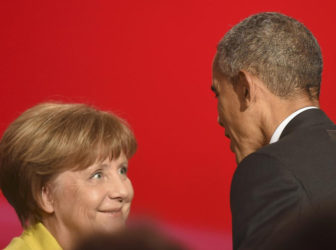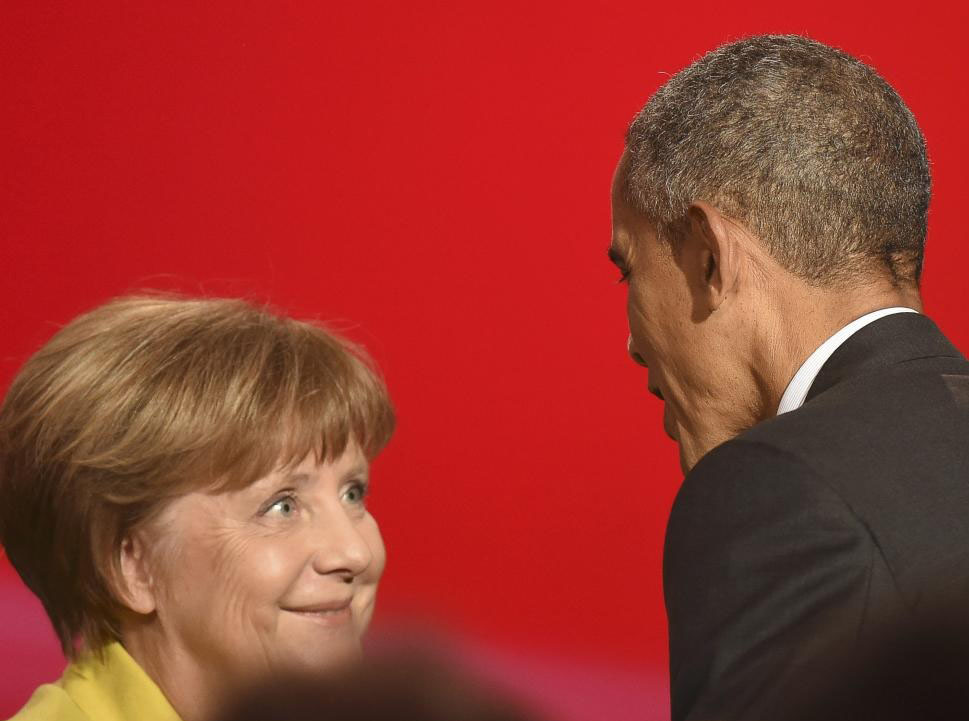HANOVER, Germany, (Reuters) – U.S. President Barack Obama said yesterday he would do whatever he could to advance a controversial trade deal with the European Union in his last eight months in office, but warned that time was running short.

Obama has pushed to complete two trade agreements before his term ends on Jan. 20 – with Pacific nations and with the EU – but has run into a growing swell of populist concerns about the impact on jobs, consumer protections and the environment.
“Time is not on our side,” he conceded to business leaders at the Hanover Messe, a massive industrial trade fair.
“If we don’t complete negotiations this year, then upcoming political transitions in the United States and Europe would mean this agreement won’t be finished for quite some time.”
Obama is in Germany to promote the Transatlantic Trade and Investment Partnership (TTIP) with German Chancellor Angela Merkel, but the issue was overshadowed by discussions on the crises in Syria, Ukraine and Libya when the two leaders met.
On Monday, they are set to hold talks with British Prime Minister David Cameron, French President Francois Hollande and Italian Prime Minister Matteo Renzi on some of the same issues.
But first, they had dinner in a 17th century palace with chief executives of some of the largest U.S. and German companies such as Microsoft, Dow, Lockheed Martin, Honeywell, BASF, Bayer and Siemens.
Also at the dinner was Matthias Müller, CEO of Volkswagen, whose company has admitted to cheating diesel emissions tests in the United States, a scandal that involves 11 million vehicles worldwide.
Obama normally does not sit through lengthy opening ceremonies.
But in a sign of the political capital he is spending on trade – and his affection for Merkel – he took a front row seat for an unusual interpretative dance performance featuring robots, futuristic music and acrobatic break-dancing.
The day before Obama arrived, thousands of protesters holding placards with slogans like “Stop TTIP” marched to express their opposition to the deal, and his motorcade whizzed past a few more as he drove through the north German city.
Obama acknowledged his message about the benefits of trade has not broken though.
“The benefits oftentimes are diffuse, whereas a particular plant or business that feels it’s been hurt by outside competition feels it very acutely,” he told reporters.
Obama said he hoped the deal, which supporters say could boost economies on each side of the Atlantic by $100 billion, would be agreed this year.
But final ratification will take more time. The Trans Pacific Partnership is first in the queue for the U.S. Congress, which is not clamoring to hold a final vote.
Obama said that could change after the Democratic and Republican parties make their final selections of candidates this summer.
“When we’re in the heat of campaigns, people naturally are going to worry more about what’s lost than what’s gained with respect to trade agreements,” he said.

